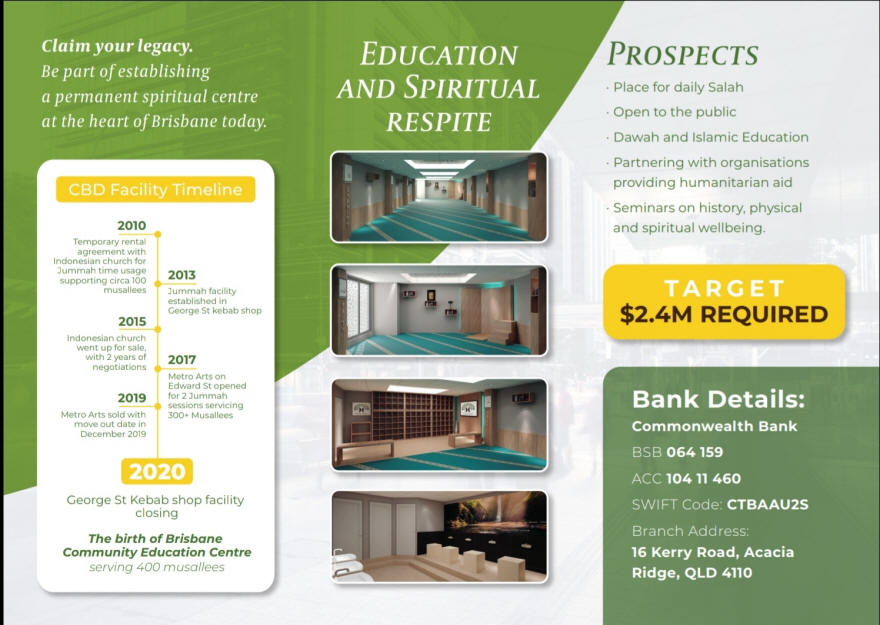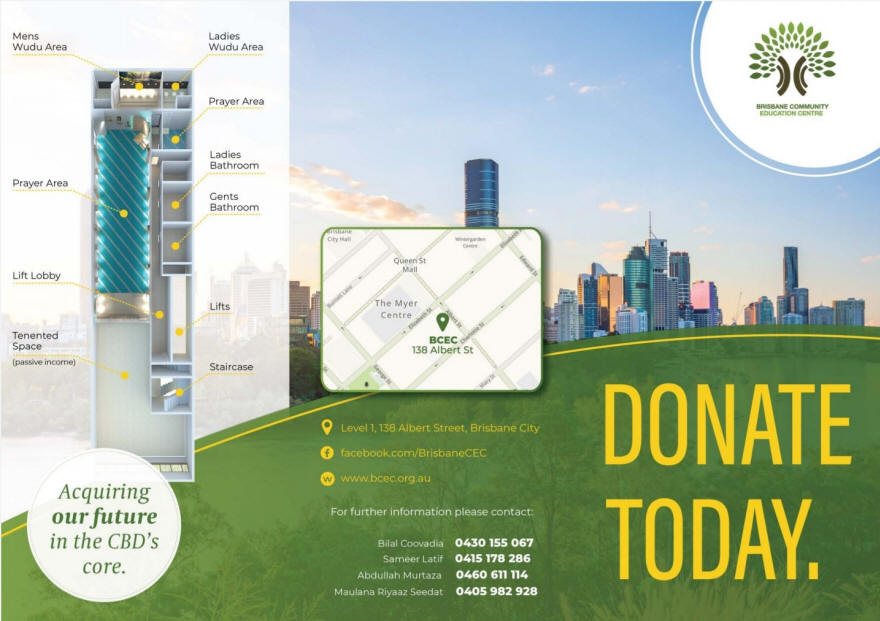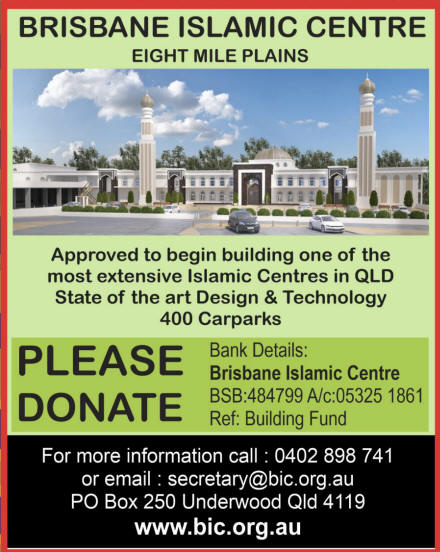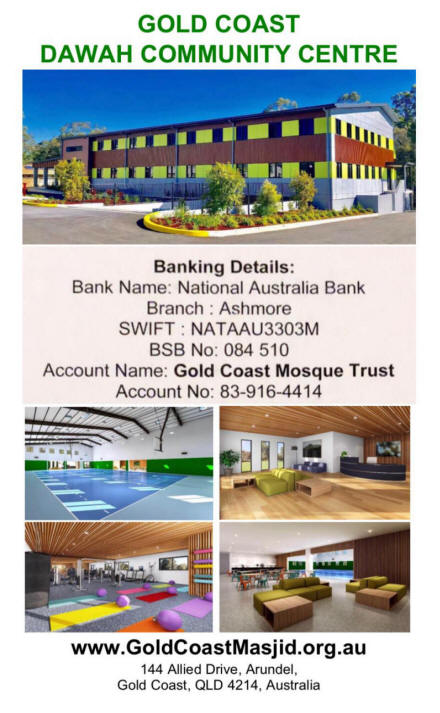.
Click a link above to go directly
to the article.
Return to this section by
clicking  at the bottom, left of the
article.
at the bottom, left of the
article.
|
|
The Age's State Political
reporter,
Sumeyya
Ilanbey,
was one of the journalist's
who worked on the
investigation into the
branch stacking in the
Victoria Labor Party that has
been dominating the news
this week.
She holds a Bachelor of
Professional Communication
and Media Studies from RMIT
University.
This year Ms Ilanbey
received the Quill Melbourne
Press Club for her coverage
of an issue or event
category for which the
judges said: “This
outstanding series
highlighted the journalistic
trio’s dogged refusal to
accept official
explanations. Their work
broke exclusive stories
about unprecedented toxic
waste dumping and
obfuscation by government
agencies in Victoria. It
carefully explained complex
issues and humanised the
health concerns of
firefighters. The entry was
of significant public
benefit and prodded
important change.”
While with the The Melton
and Moorabool Star Weekly,
Sumeyya was the lead
reporter and received a CNA
award in the "community
service" category for her
Cops in Crisis campaign. The
campaign kicked off in May
2016, highlighting the
plight of Victoria Police
officers who were calling
for extra resources. The
coverage was picked up by
other Star Weekly mastheads
and by the dailies. In
December 2016, the state
government announced a
record $2 billion boost to
Victoria Police.
In 2017 she was named a
finalist in the CNA 2016
awards for her "Election
Gun" story, which revealed a
council candidate had posted
photos online of his toddler
holding guns, weapons and
ammunition.
She
appeared on the ABC's Friday
Briefing program hosted
by Patricia Karvelas.
|
|
|
On Saturday 6 June AFP
Darwin and QLD celebrated
the end of Ramadan with the
Darwin Muslim community,
with a gathering for the
traditional Muslim Festival
of Eid.
NT Deputy Chief Minister
Nicole Manison, NT MLA
Lauren Moss, NT MLA Kate
Worden, Bishop Charles Gauci
and NT Islamic Society of
Darwin President Muhammad
Waqas attended, as well as
other community leaders.
Representing the AFP were
Detective Sergeant Ed Windle
and his daughter, NT
Detective Sergeant Karl Day,
Acting Sergeant Kemuel Lam
Paktsun with his wife and
children, Senior Constable
Brad Wallace and his wife,
and Queensland Community
Liaison Team member Federal
Agent Emir Cutuk.
The Darwin Eid gathering was
one of the few permitted
public Eid events in
Australia and was well
attended by over 200 people,
while maintaining social
distancing.
The speeches and
presentations by the
children were live streamed
to the mosque and community
hall so everyone could
participate.
Following prayers, an Eid
dinner of delicious dishes
from Indonesia, Pakistan,
Indian, Malaysia and the
Middle East all cooked and
served by volunteers.
Over the past three months
of COVID-19 restrictions,
the NT Islamic Society of
Darwin operated a
drive-through meal service
which generated over $50,000
into the Darwin economy by
selling cuisine from local
food businesses and helped
keep the NT community fed
and employed.
Special mention was given to
the AFP by President Waqas
and NT Deputy Chief Minister
Nicole Manison, who thanked
the AFP and NT Police for
being on the frontline and
keeping the NT borders safe,
resulting in the NT being
currently COVID-19 free.
|
|
|
Following the death of
George Floyd, global Black
Lives Matter protests and
debates raging over statues
from Colston to Churchill,
Intelligence Squared hosted
an online discussion with
historian David Olusoga,
Labour MP Dawn Butler,
philosopher Susan Neiman and
broadcaster Yassmin Abdel-Magied.
|
|
|
|
|
‘Humanities’ funding change
may not be all bad
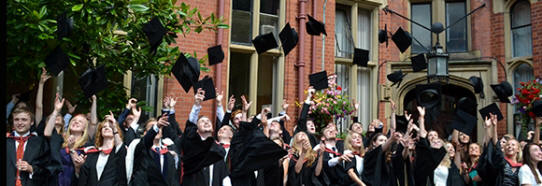
Sweeping changes to higher
education announced this
week, mainly targeting
humanities, may have a
‘terrible consequence’ for
Australia – but they may
have been necessary.
The question for me is, has
the Government taken a
sledgehammer or have they
found a good balance?
Here is the problem.
Numbers of graduates in
areas of expected employment
growth, including teaching,
nursing, agriculture, STEM
and IT – continue to miss
the mark.
Now of course there are some
problems with the logic that
this is where the jobs are –
a 2018 survey of 120,000
students by the Federal
Government found science and
mathematics graduates had
weak short-term job
prospects, with 64.6 per
cent in full-time employment
four months after
graduation. A third of
psychology graduates also
struggled to get work.
In the latest change,
humanities has been moved
into the most expensive
category with law and
management, on the grounds
that it will discourage
students away from a
‘generalist’ course and push
them towards more ‘job
relevant’ studies.
What this rationale ignores
is that humanities often
serves as significant
value-adding second degree,
providing students with
world context and critical
thinking abilities.
This will mean that
humanities and law as a
combination, the combination
I studied many years ago,
will become a thing of the
past, except for very
privileged kids or the few
who win a scholarship.
Although humanities
departments are already
dominated by white
privileged people.
Over time, we could see
universities adjust by
incorporating more
humanities into core
subjects, but will the
financial incentive be there
to do this? This is one
problem with the
Government’s policy.
It is true that scholarship
in humanities will suffer,
not only in the short term,
but in the longer term.
But on the other hand, we
have urgent concerns like
the fact that scientists
have said that we have 6
months to avert climate
disaster. The tipping point
is near, if it has not
passed already. Will this
big shift in incentives
direct more resources to
environmental science and
economics?
Monitoring and countering
societal harms are the
business of humanities. But
then have humanities
departments always been
adequately responsive to
those societal harms?
I look at the past 30 years
since the Royal Deaths in
Custody report, the
continued use of excessive
force and racial profiling
by police, the rise in
online hatred, the rise of
white supremacist discourses
impacting minorities, the
incapacity of our education
system, the poorly
understood nature of hate
crime, the continuing
vulnerability of disabled
and elderly people, family
violence, child abuse – and
ask myself, have our
humanities departments
become too esoteric? How
many PhD’s have collected
the data, quantitative or
qualitative, that are needed
to push much needed policy
responses? How responsive
are they to the most
vulnerable people?
When my sister left school
in the United States, my
father told her there was no
way he’d fund her doing
literature studies. Some of
the ‘acceptable’ choices
were economics or computer
science. While my liberal
instincts were affronted by
his stance, she went with
economics and loved it, and
has used it for a unique
social justice project in
the States – working out how
much algorithm-driven
sentencing programs used by
the courts disadvantage
Black Americans.
Sure I’m simplifying her
work as a non-economist. I
think there was a grave
error in my thinking as I
left school, that the only
way I could contribute to a
more just world was through
law and arts. Even though I
loved high-school economics,
I just couldn’t see it as a
social justice career.
The world of humanities has
to do more than cry about
‘liberal education’ and
‘critical thinking’ to make
their case. The Government’s
move might have been a
sledgehammer one, designed
to really shake up
incentives – but critical
thinking leads us to know
it’s not all bad, nor is it
all good.
Corporates, like the big
social media platforms, and
government institutions may
end up becoming bigger
sponsors of humanities
research to uncover and
respond to societal harms –
community may even step up.
This may become a growth
space for civil society.
Look at the Islamophobia in
Australia report, that has
received barely a scratch of
funding from the Australian
Muslim community let alone
anyone else (including the
university).
The question I’d love to see
answered by all those
speaking up right now, is
whether the system should be
funded the way it is now, or
does it need to diversify to
become more responsive?
|

ABOUT THE AUTHOR
Rita Jabri-Markwell
is a Lawyer and
Adviser to the
Australian Muslim
Advocacy Network (AMAN).
She can be
reached at
advocacy@aman.net.au |
The views,
thoughts and opinions
expressed here are the
author’s alone and do not
necessarily reflect or
represent the views and
opinions of Crescents
Community News (CCN).
|
|
|
 Man jailed over anti-Muslim
social media posts, threat to kill Jacinda
Ardern
Man jailed over anti-Muslim
social media posts, threat to kill Jacinda
Ardern
|
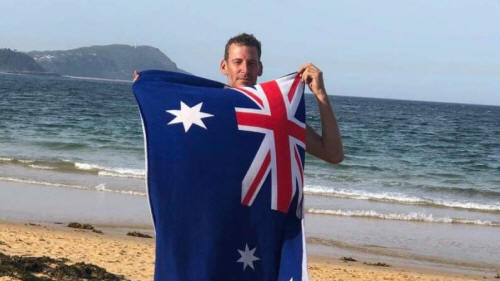
Cormac Rothsey
has been sentenced to jail for
threatening to attack a mosque. |
A man arrested in Newcastle for posting
online threats to attack a mosque and
kill the New Zealand Prime Minister has
been jailed for 10 months.
Cormac Patrick Rothsey pleaded guilty in
Newcastle District Court to charges of
posting the extremist threats on social
media in September last year.
The court on Friday heard the posts
included statements that he wanted
Muslims dead and that Muslims did not
belong in Australia.
One featured an image of New Zealand
Prime Minister Jacinda Ardern and
suggested "she should be put down like
an animal".
Defence barrister Ben Bickford told the
court the Facebook posts were highly
offensive and deeply inflammatory, but
that Rothsey was "lashing out" because
he had been assaulted by people he had
identified as Muslim men in the months
leading up to the posts.
Mr Bickford said Rothsey had been
"overwhelmed by thoughts of revenge and
hopelessness" but had shown genuine
remorse.
He argued there was nothing calculated
in the social media posts and there was
no evidence that they had reached a
large audience.
Prosecutor Sam Duggan told the court a
term of imprisonment was warranted and
should be imposed, but acknowledged the
nine-and-a-half months already served by
Rothsey since his arrest.
He said there was clearly a need for
mental health treatment as Rothsey was
clearly fixated and driven by a dislike
of Muslim people.
Judge Tim Gartelmann sentenced Rothsey
to 10 months in prison followed by a
14-month recognisance order, under which
Rothsey would be required to undergo
mental health treatment and report any
social media accounts to Community
Corrections officers.
With time already served, Rothsey will
be released from prison on July 4.

MSN
 Covid-19 unleashed a ‘tsunami
of hate’ with a surge in attacks on Muslims,
UN chief warns
Covid-19 unleashed a ‘tsunami
of hate’ with a surge in attacks on Muslims,
UN chief warns
|
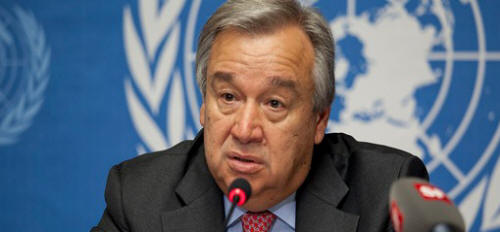
UN
Secretary-General, António
Guterre. |
The United Nations
Secretary-General said the coronavirus
pandemic is unleashing “a tsunami of
hate and xenophobia, scapegoating and
scaremongering” and appealed for “an
all-out effort to end hate speech
globally.”
Speaking on May 8, António Guterres
said, “Anti-foreigner sentiment has
surged online and in the streets,
anti-Semitic conspiracy theories have
spread, and Covid-19-related anti-Muslim
attacks have occurred.” He said migrants
and refugees “have been vilified as a
source of the virus — and then denied
access to medical treatment.”
“With older persons among the most
vulnerable, contemptible memes have
emerged suggesting they are also the
most expendable,” he said. “And
journalists, whistleblowers, health
professionals, aid workers and human
rights defenders are being targeted
simply for doing their jobs.”
Guterres called on political leaders to
demonstrate solidarity with all people,
on educational institutions to focus on
“digital literacy” at a time when
“extremists are seeking to prey on
captive and potentially despairing
audiences.”
He urged the media, especially social
media, to “remove racist, misogynist and
other harmful content,” on civil society
to strengthen their outreach to
vulnerable people and on religious
figures to serve as “models of mutual
respect.”
“And I ask everyone, everywhere, to
stand up against hate, treat each other
with dignity and take every opportunity
to spread kindness,” Guterres said.
Guterres stressed that Covid-19 “does
not care who we are, where we live, what
we believe or about any other
distinction.”
His global appeal to address and counter
Covid-19-related hate speech follows his
April 23 message calling the Coronavirus
pandemic “a human crisis that is fast
becoming a human rights crisis.”
Guterres said then that the pandemic has
seen “disproportionate effects on
certain communities, the rise of hate
speech, the targeting of vulnerable
groups and the risks of heavy-handed
security responses undermining the
health response.”
With “rising ethno-nationalism,
populism, authoritarianism and a push
back against human rights in some
countries, the crisis can provide a
pretext to adopt repressive measures for
purposes unrelated to the pandemic,” he
warned.
In February, Guterres issued a call to
action to countries, businesses and
people to help renew and revive human
rights across the globe, laying out a
seven-point plan amid concerns about
climate change, conflict and repression.

MUSLIM NEWS
|
|
|
|
UK's
Muslim News readers
nominated
illustrious men,
women, children and
initiatives deemed
worthy of
short-listing for a
Muslim News Award
for Excellence. The
nominees were
short-listed by an
independent panel of
judges who reviewed,
deliberated and
mused over the list.
Over
the next weeks, CCN
presents a
shortlisted
candidate who will
be treated to a gala
evening in the
presence of their
peers and other
renowned guests,
when the finalists
are announced for
the [15] coveted
Awards for
Excellence.
|
PLEASE
NOTE:
Due
to the
unprecedented
uncertainty
regarding
the
coronavirus
pandemic,
The
Muslim
News has
postponed
its
prestigious
annual
awards
ceremony
until
late UK
summer. |
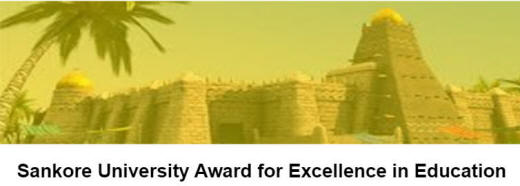
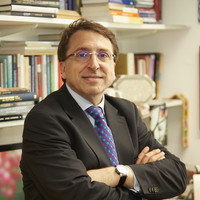 Mehmet
Asutay
is currently a
Professor of Middle
Eastern and Islamic
Political Economy &
Finance at Durham
University Business
School. Mehmet
Asutay
is currently a
Professor of Middle
Eastern and Islamic
Political Economy &
Finance at Durham
University Business
School.
Over twenty years
Mehmet has
contributed to the
burgeoning of the
field of Islamic
economics and
finance.
His career has seen
him share his
passion for moral
and
socially-conscious
economics to
international
audiences and a vast
number of students.
Under his
leadership, Mehmet’s
department at Durham
Business School has
become a globally
recognised centre of
excellence in
Islamic economics
and finance and for
the last ten years,
Mehmet has run the
annual Durham
Islamic Finance
Summer School.
source
Serialized - to be continued
in next week's CCN.
|
|
|
|
Halimah Yacob
President
of Singapore
Halimah Yacob became
Singapore’s eighth, and
first female, President in
September 2017 when she was
elected unopposed.
Influence
Election: A former
speaker of Parliament she
gave up her parliamentary
seat and position with the
ruling People’s Action Party
to run for President. The
government’s criteria for
the current President,
including that the President
must be an ethnic Malay,
meant that Yacob was
unopposed and became
President unelected, a
process which has drawn some
criticism. She is the first
ethnic Malay President.
Background: Halimah Yacob
comes from humble
beginnings, being raised by
her Malay mother after her
Indian father passed away
when she was eight years
old. Her mother struggled to
raise her five children and
Halimah almost neglected her
school studies because of
the need to help out at
home. She was successful at
school and continued to
obtain her law degree and
master’s in law from the
National University of
Singapore. She then went on
to work at the National
Trades Union Congress before
becoming Director of the
Singapore Institute of
Labour Studies.
Political career: She
entered politics in 2001 and
a decade later was appointed
Minister of Community
Development, Youth and
Sports and later on Minister
of Social and Family
Development. She was elected
Speaker of Parliament in
2013, becoming the first
woman to hold the post. As
President she has promoted
initiatives for supporting a
cohesive society,
strengthening interfaith and
recognizing all workers who
contribute to Singapore’s
growth. She has a strong
international profile,
regularly meeting world
leaders.
.
Source
|
|
|
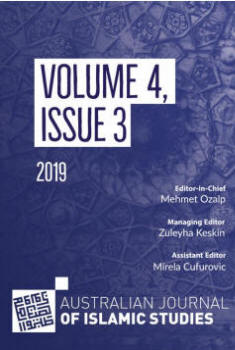 Towards
Demystifying Islamophobia: Towards
Demystifying Islamophobia:
A Muslim’s Perspective
by Zouhir Gabsi, Deakin
University
ABSTRACT
Islamophobia has been a
recurrent socio-political
narrative for some time now,
and it has been exacerbated
since the aftermath of 9/11.
Despite the plethora of
studies on the subject,
little is known about Muslim
scholars’ perception of this
phenomenon. This is due
primarily to the language
barrier since the Arabic
language is the code for
their discourse.
It is essential to consider
both Islamic and Western
perspectives to understand
the problem thoroughly and
suggest solutions, as
relying on one approach is
both biased and
uncompromising. Accordingly,
the purpose of this paper is
threefold:
First, it explains how
Islamophobia should be
defined contextually. It
frames its arguments within
three contexts: a historical
setting (Meccan and Madinah
period), Islam in the Arab
world, and Islam in the
West.
Second, the paper
demonstrates how a Muslim’s
perspective contrasts with
the Western narrative. It
critically challenges some
of the arguments put forward
in social sciences and
intellectual discourses and
adopts an unapologetic and
non-defensive approach in
the treatment of
Islamophobia.
Third, the paper discusses
the variables that affect
Islamophobia, such as
Western media and terrorism
(including state terrorism).
Finally, the paper proposes
some approaches to
mitigating the situation.
Over the
weeks,
CCN
highlights
extracts
from the
Australian
Journal
of
Islamic
Studies
which is
an open
access,
double-blind
peer-reviewed
journal
dedicated
to the
scholarly
study of
Islam
|
|
...continued from last
week's CCN
CRITIQUE OF THE MUSLIM
VIEW ON ISLAMOPHOBIA
The texts reviewed
present reflective views
of the phenomenon of
Islamophobia. They hinge
on numerous doctrines,
some of which deserve
close attention.
The most obvious feature
of these texts, in their
treatment of
Islamophobia, is their
divergence from the
common apologetic and
defensive trend that
characterises the
speeches of Muslim
preachers.
The first general point
to be made is that Islam
is a complex religion
and Muslims, including
Muslim leaders, play a
role in raising
awareness about Islamic
teachings.
Second, Islamophobia is
a complex phenomenon in
which numerous variables
play a role,
specifically Western
media.
Third, the animosity
between the Muslim world
and West is rooted in
history, and bridges of
understanding have not
been built, which is
perpetuated in our time.
Fourth, the role of
Orientalists is
important in presenting
Islam objectively and
Muslim scholars should
monitor their work by
actively debunking
misconceptions about
Islam.
However, some views
expressed in these texts
need some qualification.
For instance, when Najm
mentions Egypt’s role in
fighting terrorism, his
views overlook the fact
that Egypt has a record
of human rights abuses.
According to Human
Rights Watch, under
Abdel Fattah al-Sīsi,
Egypt still uses torture
and other forms of
abuses.65 Najm’s lack of
objectivity in this
matter questions the
role of muftis in modern
day Egypt. This may open
further discussion about
whether muftis,
especially after the
Arab spring, have become
mere servants of power.
Other striking examples
of unsubstantiated
claims that are
propagated by Muslim
scholars are related to
the West’s role in
dividing the ummah –
‘Islamic community’ –
and the emergence of the
terror groups such as
Islamic State. One may
argue, while it is true
the West has drawn lines
in the sand and created
numerous ‘statelets,’
the blame cannot be put
solely on the West for
the Arab’s failure to
unite.
What is starkly clear is
the role of Western
media to expose the
truth. Western media has
propagated lies and
deceit, as in the case
of Iraq and the WMD,
which has turned out to
be weapons of mass
‘deception,’ not
‘destruction.’
What has not been
mentioned in the texts
is the role of education
in combating
Islamophobia. To combat
it successfully,
attention needs to be
drawn to those areas of
Islam that the West
ignores; namely, Islamic
ethics. For instance,
the importance of
respecting and caring
for one’s neighbour, the
merciful nature of the
marital relationship,
filial piety, charity
and animal welfare.
Ethical behaviour is
cemented and dictated by
the Qur’ān and hadīth.
Probably the best
reference for Islamic
ethical behaviour is
Imām al-Nawawī’s 12th
century book Riyādh al-Ṣāliḥīn
(Garden for the
Righteous).
Serialized: to be
continued in next week's CCN
source
|
|
|
|
Op-Eds;
Commentaries & Blogs
|

Why the
Protests in the
U.S. Are an
Awakening for
Non-Black People
Around the World
by Yassmin
Abdel-Magied
|
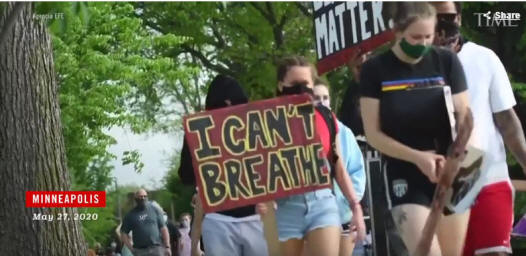 |
The United
States is alight
with the flame
of revolution.
Like wildfire,
it spreads, and
it has been a
long time
coming. But
revolution is
borderless, and
racism is not
solely an
American
problem.
Though the
murder of George
Floyd at the
knee of police
was the most
recent spark,
the fuel has
been pouring for
decades.
Widespread
police brutality
in an
environment of
racialized
poverty and
inequality have
led Black people
in the United
States to feel
there is no
option but to
overwhelm the
streets. Years
of peaceful
protest and
court
proceedings
brought neither
change, nor
justice. And so,
uprisings; the
ferocious cry of
the unheard.
Outside the
United States,
solidarity
protests have
sprung up in
Australia,
Britain,
Germany, France
and beyond. Some
have struggled
to understand
why, blithely
suggesting that
these protests
are due to the
United States’
cultural
hegemony. But as
someone who grew
up in Australia,
lives in the
United Kingdom
and travels
often to work in
the United
States, it’s
clear to me that
the reason lies
closer to home.
The structural
racism
underlying
police brutality
in the United
States thrives
globally,
including in
Australia and
Britain. In
England and
Wales, young
Black people are
nine times more
likely to be
locked up than
their white
peers and in
Australia,
Aboriginal and
Torres Strait
Islanders
account for 28%
of the prison
population,
despite only
making up 3.3%
of the total
Australian
population. The
statistics are
devastating in
their
conclusion:
Britain and
Australia
disproportionally
kill and
incarcerate
Black and
Indigenous
people. For
those whose
bodies are not
directly
violated, equity
of opportunity
is still a long
way off. The
system of white
supremacy is
alive and well.
“I don’t know
any Black person
that would be
surprised or
shocked by what
happened with
George Floyd,”
says Dr Shola
Mos-Shogbamimu,
lawyer and
women’s rights
activist in the
UK. “People
suffer from
selective
amnesia: they
forget Grenfell,
Windrush, Sarah
Reid, Rashaan
Charles, Mark
Duggan, Stephen
Lawrence.”
This “selective
amnesia”
conveniently
extends back
centuries,
eliding over the
fact that the
British Empire
was effectively
responsible for
the concept of
race and racism.
The Barbados
Slave Code of
1661 marked the
beginning of the
legal
codification of
slavery,
establishing the
concept of
“Black” and
“white” races
and the racial
hierarchy
between them.
Enslaved people
who were Black
were deemed
“slaves,”
property into
perpetuity,
whereas white
people (Irish,
English,
Scottish) would
be labeled
‘indentured
servants’,
property only
for the length
of their
contract. As
Barbados was the
first English
colony to create
a set of slavery
laws, these laws
created the
foundation
ideology for
white supremacy
that continues
to smother Black
lives and dreams
today.
Not only
are the British
often quick to
deny their links
to the origins
of racism and
forget their
role in
pioneering the
transatlantic
slave trade,
they also ignore
how they built
an entire nation
based on the
concept of
‘whiteness’ they
so treasured.
Australia, the
country I grew
up in, was that
very project.
When James Cook
declared it
“nobody’s land”
(Terra Nullius)
in 1770, he
erased 65,000
years of
Aboriginal and
Torres Strait
Islander
inhabitancy.
This meant no
obligation to
get consent to
settle, and the
freedom to
murder
Indigenous
people with
impunity. Those
who survived
were declared
subjects of the
British Crown
and forcibly
“assimilated.”
Whiteness
continued to be
the nation’s
aspiration,
furthered by the
Immigration
Restriction Act
of 1901, a bill
that introduced
the “White
Australia
Policy,”
forbidding
non-European
migration. The
policy was only
officially
dismantled by
1973.
Australia has
never formally
acknowledged its
racist and
genocidal
history, and so
unsurprisingly,
the amnesia
persists. “When
I see things
like George
Floyd, I’m just
very thankful
for the
wonderful
country we live
in,” Australian
Prime Minister
Scott Morrison
said earlier
this week,
warning against
importing
overseas
divisions to
Australia while
hundreds of
protesters
gathered in
Sydney. He
conveniently
forgets that the
very existence
of his
“wonderful
country” is
contingent on
the violent and
enduring
oppression of
Aboriginal
people. Too many
Australians
prefer to live
in wilful denial
rather than face
the brutal
specter of their
history.

TIME
Yassmin
Abdel-Magied is a
Sudanese-Australian writer,
broadcaster and
award-winning social
advocate with a background
in mechanical engineering.
Her books include the
best-selling memoir,
Yassmin's Story, and the
novel for younger readers,
You Must Be Layla.
|
|
|
|
Decadent Lamb Curry from
Lahore!
Lockdown Lab #4
Mohammad Tufael Chowdhury
Lockdown Lab
is a channel for
experimental cooking. This
is cooking with travel
stories. This is a 7-minute
take on a delicious North
Indian / Pakistani dish by a
curious traveller who
discovered it on many trips
to Lahore and Delhi!
|
|
MASJIDS
ARE OPEN!!!
NOW THIS
Qatar
announced on June 15 that
500 mosques will reopen
after being closed for three
months due to COVID-19.
Musa Abdul-Aleem,
a Muslim American basketball
player, recorded himself
gleefully running to a
mosque on Monday.
I pulled out
my phone and thought to
record such a historic
moment of hearing the Iqama
for the first time in three
months! That has never
happened before,’ Abdul-Aleem
told Storyful.
‘Masjid’ is
the Arabic word for mosque.
‘Iqama’ is the second call
to Islamic prayer. |
|
PLEASE
NOTE
It is the usual policy of CCN to
include notices of events, video links and articles that
some readers may find interesting or relevant. Such notices
are often posted as received. Including such messages/links
or providing the details of such events does not necessarily
imply endorsement or agreement by CCN of the contents
therein. |
|
|
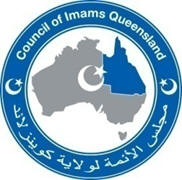
CIQ
Perpetual
Salaah
Timetable
BRISBANE
download |
|
RESUMPTION OF PRAYERS
AT
MOSQUES |
|
|
Garden City Mosque, Toowoomba
The Mosque is now open for daily prayers. But we must strictly maintain physical hygiene, sanitation and social distance all the time.
To ensure safety of the worshippers, please observe the following conditions:
A) Exclusions:
-
People over 55 year old, children and women will pray at home until further notice.
-
Do not come to the Masjid if you are sick or have fiver or cough or any flu like symptom.
-
Jumma prayers is not permitted in the Masjid as yet.
B) Number restriction:
Maximum of 20 worshippers are permitted at any time with at last 1.5m social distance. Please do not enter the Masjid if there is already 20 people inside the prayer hall.
C) For prayers:
-
Everybody brings his own prayer mats and facial tissues
-
Everyone must use hand sanitizer prior to entry to the prayer hall
-
Everyone will come with ablution (wudu) and avoid using toilet in the Masjid
-
Only offer Fardh prayers in the Masjid.
-
Please leave the Masjid immediately without hanging around too long.
|
|
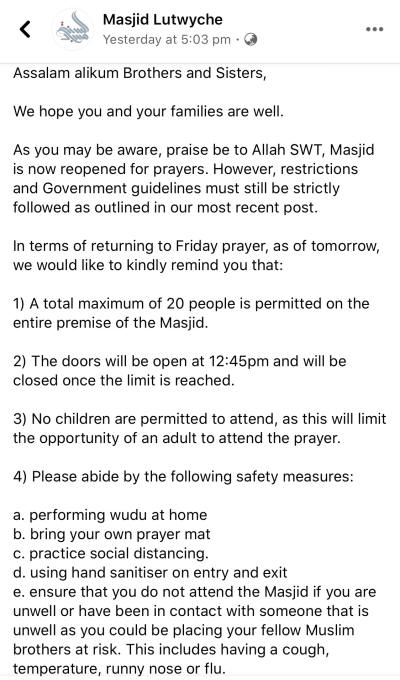
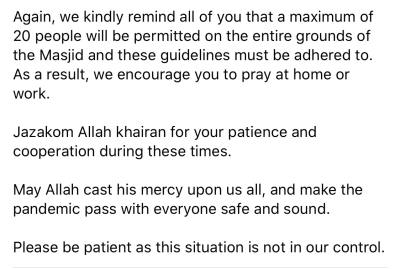
|
|
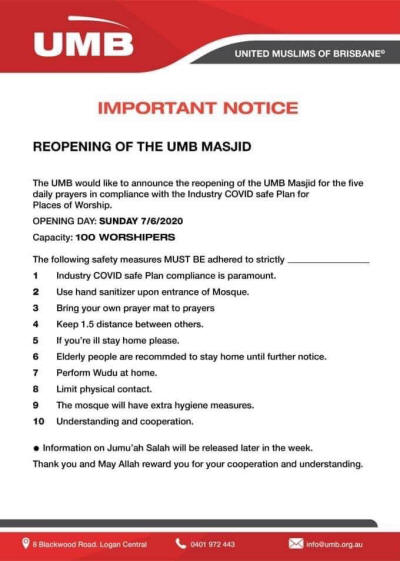
|
SLACKSCREEK
MOSQUE
Please
be
advised
that
the
registration
link
for
the
next
jummah
is
now
on
the
Slacks
Creek
Mosque
website.
Registration
is a
must
to
help
us
follow
legal
requirements...
.....and
you
must
bring
your
own
prayer
mat.
For
Jummah
on
26th
June
Please
register
here:
https://forms.gle/RbEL3SVUywiBwW7T9

Download
Flyer |
|
KURABY
MOSQUE

Download
Flyer
To
book
your
place
this
Friday
visit
the
Mosque
website |
AL
MUSTAPHA
INSTITUTE

Download
Flyer |
|
GOLD
COAST
MOSQUE
Alhaamdulillah,
with
the
latest
relaxation
by
Qld
Government
to
increase
up
to
100
worshippers
in
place
of
worship,
now
you
can
pray
five
times
daily
salat
in
Gold
Coast
masjid
except
Friday
Jumma
prayer
which
is
for
card
holders
only
(100
cards
already
distributed).
Salaat
times
as
follows:
Fajr
5:45am
Zohur
12:30
Magrib:
Please
see
here.
Asr
4pm
Esha
6:45pm
Entry
into
the
prayer
hall
is
subject
to
following
conditions:
1.
Your
body
temperature
will
be
taken
at
the
entrance.
2.
Use
sanitiser
before
entry.
3.
Keep
a
social
distance
of
1.5meter
between
each
other.
4.
Avoid
physical
contact.
5.
Please
don’t
come
if
you
are
sick,
running
nose,
coughing
etc.
6.
Please
come
earlier
to
each
salaat
as
you
need
to
register
your
name
and
body
temperature
before
entry
A
2nd
Jumma
for
100
musallees
has
been
organised
for
this
Friday
at
1.15pm.
Please
collect
your
Blue
colour
Entry
card
from
masjid
during
any
salaats
before
this
Thursday.
First
come
First
serve
basis.
No
Card.
No
Entry
You
will
need
to
produce
your
blue
colour
entry
card
at
the
entrance
or
the
security
will
not
allow
you
in.
Preferable
you
make
Wudhu
before
coming
to
the
Masjid.
Thanks
Entry
into
the
prayer
hall
is
subject
to
following
conditions:
1.
Your
body
temperature
will
be
taken
at
the
entrance.
2.
Use
sanitiser
before
entry.
3.
Keep
a
social
distance
of
1.5meter
between
each
other.
4.
Avoid
physical
contact.
5.
Please
don’t
come
if
you
are
sick,
running
nose,
coughing
etc.
6.
Please
come
earlier
to
each
salaat
as
you
need
to
register
your
name
and
body
temperature
before
entry |
ALGESTER
MOSQUE

Download
Flyer |
|
MASJID AL
FAROOQ/KURABY
MOSQUE
Listen live
with the
TuneIn app
at
http://tun.in/sfw8Z
Friday
lecture
(sermon)
DATE:
19 June 2020
IMAM: Ahmed
Nafaa
WEEK 14:
FRIDAY
PRAYERS
RESUMED
UNDER
COVID-19
PROTOCOLS
PAST
RECORDINGS
|
|
HOLLAND
PARK MOSQUE

Friday
lecture
(sermon)
DATE:
19 June 2020
IMAM:
Uzair Akbar
WEEK 14:
FRIDAY
PRAYERS
SUSPENDED AT
THE MOSQUE
PAST
RECORDINGS
|
|
SLACKS
CREEK MOSQUE
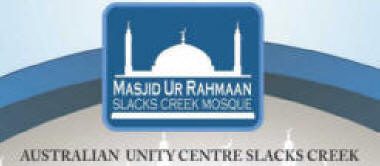

Friday
lecture
(sermon)
DATE:
19 June 2020
WEEK 14:
FRIDAY
PRAYERS
RESUMED
UNDER
COVID-19
PROTOCOLS
|
|
MASJID
TAQWA/BALD
HILLS MOSQUE

Friday
lecture
(sermon)
DATE:
19 June 2020
WEEK 14:
FRIDAY
PRAYERS
SUSPENDED AT
THE MOSQUE
PAST
RECORDINGS:
Lecture
Recording
|
|
DARRA
MOSQUE
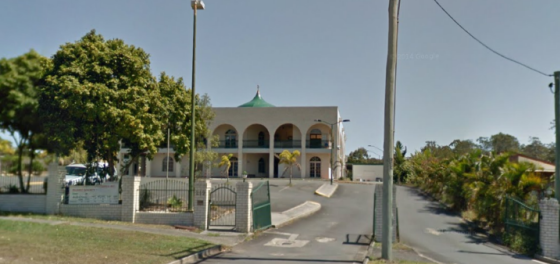
Friday
lecture
(sermon)
DATE:
19 June 2020
WEEK 14:
FRIDAY
PRAYERS
RESUMED
UNDER
COVID-19
PROTOCOLS
PAST
RECORDINGS:

|

Click here
for list
|
|
 |
|
|
|
 Tory activist suspended for saying Muslim MP
Naz Shah should 'go back to Pakistan'
Tory activist suspended for saying Muslim MP
Naz Shah should 'go back to Pakistan'
|
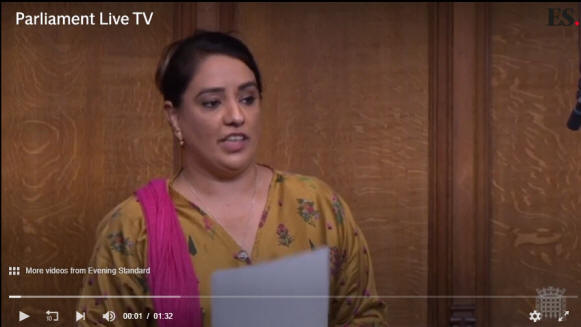
MP Naz Shah |
|
UK: A Tory activist has
been suspended from the Conservative
Party after she said a Labour MP should
“go back to Pakistan”.
A video was shared on activist Theodora
Dickinson’s Twitter account showing MP
Naz Shah speaking about child poverty
with a caption calling her “racist”.
The caption said: “If racist Naz
Shah hates this country so much why
doesn’t she go back to Pakistan?!”
The post has since been deleted and the
Standard has made attempts to contact Ms
Dickinson for a response.
Ms Dickinson has been pictured with
Boris Johnson, former Prime Minister
Theresa May, current Foreign Secretary
Dominic Raab and several other Tory MPs.
She ran as a Conservative Party
candidate in Deal in the 2019 local
election, according to her Twitter
account.
Ms Shah, a prominent Muslim MP who has
previously spoken out about racism, told
the Standard: "This kind of blatant
racism will not deter me from speaking
out.
“Quite the opposite, it just reinforces
why it's necessary to fight vile bigotry
and intolerance and makes me more
determined.
“The question for Boris Johnson is, why
is this sort of person drawn to him and
his party?”
Ms Shah was born and raised in Bradford
West where she is now the serving MP.
In a statement Ms Dickinson said: "I am
very sorry for my comments earlier
today.
"I fully recognise how offensive
it was, which is why I deleted the tweet
almost immediately, though of course
this does not excuse posting it in the
first place.
"It was crass and insensitive.
"I have written to Ms Shah offering an
unreserved apology."
A Conservative Party spokesman said:
“Theodora Dickinson has been suspended
pending the outcome of an
investigation.”
Harun Khan, Secretary General of the
Muslim Council of Britain, said: “The
[Conservative] Party must reflect and
consider why it chooses to ignore
widespread concerns about its
institutional Islamophobia – if a truly
independent inquiry is not enacted with
its recommendations implemented, there
will be a drip-feed of these stories for
a long time to come.

the EVENING STANDARD
|
 Saudi Arabia’s Peaking Virus Cases Aren’t
Slowing Its Reopening
Saudi Arabia’s Peaking Virus Cases Aren’t
Slowing Its Reopening
|
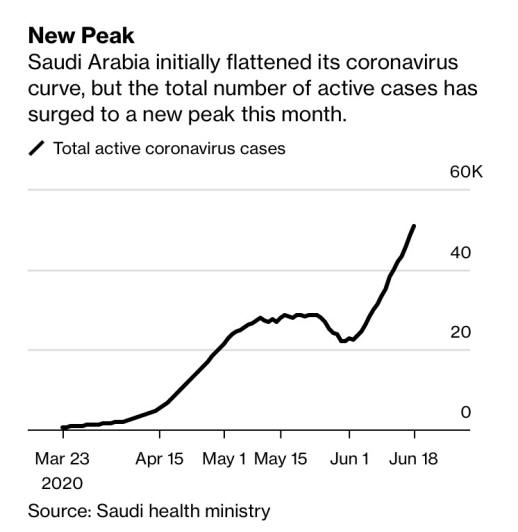 |
|
SAUDI ARABIA: The
sweltering afternoon in central Riyadh
feels much like any other, as traffic
snarls past a McDonald’s and men huddle
for a smoke outside an office. But the
bright red letters on a Health Ministry
billboard point to a different reality:
“We fear for you!” it warns.
Like the rest of the world, Saudi Arabia
is trying to balance public health
concerns with economic imperatives. But
unlike many countries facing higher case
counts after reopening their economies,
the kingdom is pushing ahead with
normalization just as infections hit
all-time highs.
With more than 4,000 new Covid-19 cases
a day, the pandemic is surging in Saudi
Arabia, and last week it became the 15th
country to record 100,000 cases of the
disease. Officials have taken to
television stations to urge residents to
avoid gatherings and wear masks as
people get back to work, and have
reimposed a lockdown in the coastal city
of Jeddah.
The motivation to return to some version
of normal is particularly strong in the
oil-dependent kingdom, which is facing a
double crisis with turmoil in crude
markets layered on top of the
coronavirus-related slump. Standard
Chartered Plc expects gross domestic
product to contract 5% this year, with
the non-oil sector -- the engine of job
creation -- shrinking for the first time
in three decades.
Curfew Ends
As one of the world’s strictest
lockdowns is rolled back -- an evening
curfew is set to end on Sunday in most
cities and sports teams can resume
training -- there are mixed feelings
among the 34 million people essentially
being asked to live with the virus.
“The cases are rising up -- it’s a fact
that we need to accept,” said Mamdoh
Alanazi, a 31-year-old nurse. Staying
home until there’s a vaccine is “not
logical anymore,” he said.
Others are concerned as intensive care
units fill up and the death rate, still
among the lowest in the world at 0.8%,
steadily rises.
“When things began to reopen, we started
getting more stressed out,” said Noura
Abdullah, 32. “We’ve been cooped up for
three months, and now you’re telling us
we should go out and it’s survival of
the fittest?”
New Peak
Saudi Arabia initially flattened its
coronavirus curve, but the total number
of active cases has surged to a new peak
this month.
Initially it seemed like Saudi Arabia
had the outbreak well under control. The
government imposed early and strict
precautions, including a 24-hour
lockdown in April.
As restrictions were loosened in May
though, the virus that was until then
spreading largely among foreign workers
also invaded Saudi homes. As in Italy,
it’s finding fertile ground in
multi-generational households, where
large family gatherings and physical
greetings are deeply ingrained customs.
The total number of cases reached
145,991 on Thursday. Medical workers
have begun to die and signs around the
capital urge passersby: “Don’t be the
next statistic.” The government has
launched an optional smart-phone
application to aid contract tracing.
At a virtual press conference this week,
health ministry spokesman Mohammed Al-Abdulaali
blamed the rise in cases on poor
adherence to precautionary measures.
Among new rules are mandatory face masks
in public, and worshipers keeping their
distance instead of standing shoulder to
shoulder in mosques.
‘Additional Measures’
If any region is found to need
“intervention or additional measures,”
it will get them, Al-Abdulaali said. In
Jeddah and Mecca, where the death rate
is five times higher than the capital,
fewer restrictions have been eased.
Meanwhile in Riyadh, as new cases spiked
to a record of more than 2,300 on
Wednesday, workers went to their offices
and restaurants continued to host
diners.
“I feel like we’re back to
pre-quarantine era,” said Fahad Khalid,
24, a fresh graduate who’s relieved that
his job search has picked up after a
lull during the lockdown. “I’m glad that
things are back to normal.”

the BLOOMBERG
|
 First woman appointed head of interfaith hub
Harmony Centre
First woman appointed head of interfaith hub
Harmony Centre
|
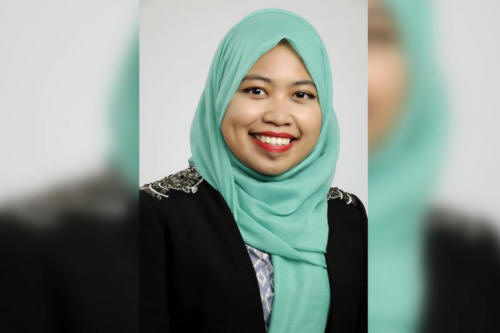
Ustazah
Liyana Rosli Asmara has been
with the centre for four years
and was its former manager. |
|
SINGAPORE: The Harmony
Centre will get its first woman leader
next month, when Ustazah Liyana Rosli
Asmara takes over the interfaith hub at
An-Nahdhah Mosque in Bishan.
She will be taking over from Ustaz
Mohamed Ali Atan as head of the Harmony
Centre, which was first launched in 2006
as an initiative by the Islamic
Religious Council of Singapore (Muis).
At a virtual interfaith Hari Raya
celebration on Wednesday (June 17),
Ustazah Liyana symbolically took over
from Ustaz Ali in front of
representatives from various faith
communities, including the Young Sikh
Association, Archdiocesan Catholic
Council for Interreligious Dialogue and
Singapore Buddhist Federation.
Ustazah Liyana has been with the centre
for almost eight years, and its manager
for the past four years. She will be the
fifth head of the centre.
The former educator said she was
grateful for the opportunity to lead the
centre, which promotes greater
understanding and engagement between
different faiths.
"I hope to continue the good work done
by the Harmony Centre with faith
communities, as we work to address the
ever-changing needs of our communities
to strengthen inter-religious
relations," she said.
She added: "I hope to also expand the
platform to encourage more women to play
a more critical role in interfaith
understanding and shaping the religious
life of our community."

THE STRAITS TIMES
|
|
|
|
|
|

Princess Lakshman
Princess R. Lakshman
is a writer, poet,
life coach, and
spiritual
counsellor. She
lives in Brisbane,
Australia. Her
website is
www.princesslakshman.com
website: http://www.princesslakshman.com
email:
info@princesslakshman.com

Muslimah
Mind
Matters
If you wish to know
about a specific
topic with regards
to Self-Care and
Clarity of Mind,
please text or email
me. If you wish to
have a FREE one hour
Finding Clarity
telephone session,
contact me on
0451977786
|
If you wish to know
about a specific
topic with regards
to Self-Care and
Clarity of Mind,
please text or email
me or visit
www.muslimahmindmatters.com.
If you wish to have
a FREE one hour
Finding Clarity
telephone session,
contact me on
0451977786. |
|
FREE
E-Book Muslimah
Mind Matters - The
Ultimate Self-Care
Guide For Muslimah
click here.
|
Muslimah Mind
Matters now has a
blog site.
Please visit this
link and follow the
website to get your
latest articles on
self-care and mind
wellness from
Princess R. Lakshman
(Sister Iqra)
https://muslimahmindmatters.wordpress.com
Muslimah Mind
Matters blog site
advocates self-care
and clarity of mind
for Muslim women.
Princess R. Lakshman
is a writer, mind
wellness coach,
narrative therapist,
soon-to-qualified
clinical
nutritionist,
speaker, and
workshop
facilitator.
To suggest topics
for blogs, email
info@princesslakshman.com
|
How To Love
Yourself
Unconditionally
Self-Love
You say you care
about the world
Yet you care not for
yourself
You say you love the
children of the
world
Yet you love not the
child in you
You say you forgive
others
Yet you forgive not
yourself
You say you want the
best for others
Yet you embrace not
the good that comes
your way
You say you want to
heal from all that
causes you pain
Yet you choose to
re-live painful
memories everyday
You say you love
ALLAH
Yet you are unkind
to ALLAH’s creation
that is closest to
you
Yes, you are ALLAH’s
creation that is
closest to you
Appreciate yourself
Care for yourself
Be kind to yourself
Be compassionate
with yourself
Forgive yourself
Love yourself
Remember…
You are ALLAH’s
creation that is
closest to you.
How many times in a
day or week do you
tell someone you
love them? How many
times do you tell
yourself that you
love yourself?
Daily? Weekly?
Monthly?
Almost never?
Observe your body
and your thoughts as
you try this little
exercise – read this
affirmation out
loud: I Love Myself.
Say it again, a few
times. If you’re
feeling a little
uncomfortable saying
it, ask yourself
why. It took me 38
years to learn to
love myself. My goal
now is to love
myself
unconditionally. I
am yet to master the
‘unconditional’
aspect of self-love.
I usually do a
“mirror” exercise
with my clients
where they look at
their face in a
compact mirror and
say “I love you”.
Only a handful of my
clients have been
successful at
completing this
exercise. Some even
told me they ‘hate’
themselves. Some
expressed that
‘love’ was a very
strong word and they
didn’t feel they
deserved it. Some
said ‘there was
nothing there to
love’.
I resonate with all
these statements.
It’s not easy to
love yourself. In
fact, it’s easier to
keep living in shame
or guilt. But
remember, what is
easier to do isn’t
always in alignment
with ALLAH’s
commandments.
“It is Allah Who has
made for you the
earth as a resting
place, and the sky
as a canopy, and has
given you shape- and
made your shapes
beautiful,- and has
provided for you
Sustenance, of
things pure and
good;- such is Allah
your Lord. So Glory
to Allah, the Lord
of the Worlds!”
(Holy Quran: Surah
40 – The Believer,
Ayat 64)
Ponder on this ayat.
One can only
implement this
commandment if one
lives with
unconditional love.
That unconditional
love must start from
unconditionally
loving yourself
first.
So why is it so
difficult for so
many people to love
themselves? It’s
because we tend to
forget that we are
not our experiences.
We are a force that
can overcome
experiences, no
matter how negative
they may be.
Whatever you have
been through in
life, you are still
here, well and
alive. You made it.
I realised something
when I learned to
love myself. It
wasn’t that I hated
myself – it was that
I hated all the
choices I made in my
life that brought
about the negative
experiences. It was
that I hated my
behaviours that I
was displaying most
of my life. It was
that I couldn’t
differentiate that
my body was
different from my
soul. I learned
self-love when I
began to connect
with my essential
self – my intuitive
voice, the voice of
my soul.
The voice which
never misguides
because it is pure
and isn’t affected
by past
conditioning. When I
began to acknowledge
my authentic,
essential self, I
understood that I am
a pure being created
by ALLAH and I must
love this being that
dwells inside my
body.
Daily Practice of
Self-Love
1. After salah, sit
on your prayer mat
for about five
minutes and focus on
your breathing.
2. With each
in-breath, feel your
body energised with
light. Imagine light
entering through the
crown of your head
and dispersing
through every part
of your body.
3. With each
out-breath, praise
ALLAH for creating
you and giving you
this precious body
to live in. Imagine
the light pouring
out of your body and
reaching other
members in your
home, your
neighbours, your
community, the
nation, and to the
rest of the world.
Your mind is
powerful enough to
create this image.
Praise ALLAH for the
power of your
beautiful mind.
4. Say these words
in your mind or out
loud if you are
comfortable: I am a
beautiful creation
of ALLAH. I love
myself. I receive
only love, light,
kindness, peace and
joy. I give out only
love, light,
kindness, peace and
joy.
Always remember,
you are not your
experiences. You are
the FORCE that
overcomes them.
Join the Muslimah
Mind Matters email
list to receive your
FREE
FREE GIFT Receive
your FREE first
module from
the
Joyful Muslimah
Online Program
For more
inspiration, check
out the
YouTube Channel for
Muslimah Mind
Matters
Download the article
|
|
|
The CCN

With the Heart
in Mind: The Moral & Emotional Intelligence of the Prophet
by
Mikaeel Ahmed Smith
|
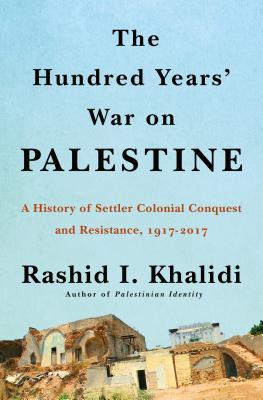 DESCRIPTION DESCRIPTION
The Hundred Years' War on
Palestine: A History of
Settler-Colonial Conquest
and Resistance, 1917-2017
by Rashid Khalidi
A landmark history of one
hundred years of war waged
against the Palestinians
from the foremost US
historian of the Middle
East, told through pivotal
events and family history.
In 1899, Yusuf Diya al-Khalidi,
mayor of Jerusalem, alarmed
by the Zionist call to
create a Jewish national
home in Palestine, wrote a
letter aimed at Theodore
Herzl: the country had an
indigenous people who would
not easily accept their own
displacement. He warned of
the perils ahead, ending his
note, "in the name of God,
let Palestine be left
alone." Thus Rashid Khalidi,
al-Khalidi's
great-great-nephew, begins
this sweeping history, the
first general account of the
conflict told from an
explicitly Palestinian
perspective.
Drawing on a wealth of
untapped archival materials
and the reports of
generations of family
members - mayors, judges,
scholars, diplomats, and
journalists - The Hundred
Years' War on Palestine
upends accepted
interpretations of the
conflict, which tend, at
best, to describe a tragic
clash between two peoples
with claims to the same
territory. Instead, Khalidi
traces a hundred years of
colonial war on the
Palestinians, waged first by
the Zionist movement and
then Israel, but backed by
Britain and the United
States, the great powers of
the age. He highlights the
key episodes in this
colonial campaign, from the
1917 Balfour Declaration to
the destruction of Palestine
in 1948, from Israel's 1982
invasion of Lebanon to the
endless and futile peace
process.
Original, authoritative, and
important, The Hundred
Years' War on Palestine is
not a chronicle of
victimization, nor does it
whitewash the mistakes of
Palestinian leaders or deny
the emergence of national
movements on both sides. In
reevaluating the forces
arrayed against the
Palestinians, it offers an
illuminating new view of a
conflict that continues to
this day.
REVIEW
Rashid Khalidi’s book is the
story of his own Palestinian
family who suffered
expulsion during the Nakba
(Day of Catastrophe) and
left behind archives of
their political actions. It
allows the reader to
understand the history of
the region through the
paradigm of a family and how
each generation dealt with
the wars they found
themselves straddled with.
This book is beautifully
written, but incredibly
painful to read.
He breaks the last 100 years
into six time periods
beginning from the time of
the Balfour Declaration
(1917) to present-day 2020,
the year when President
Donald Trump’s
Administration claimed
Jerusalem as the capital of
Israel.
The Balfour Declaration like
its future counterparts told
the Palestinian Leadership
‘in order to be recognised,
the Palestinians were
required to accept an
international formula
designed to negate their
existence.’ (p123)
Khalidi is scathingly
critical of the role the
British, American and its
Arab allies have played in
the Palestinian Israeli
conflict.
Israel has managed to amass
great military prowess due
to its ability to influence
the narratives within the
hegemons of the era. Israeli
soldiers during World War II
had received training in the
British army, and they could
apply the training received
in their army.
‘But unlike the Jewish
soldiers from Palestine,
(the Palestinians) never
constituted a single unit
(within the British army),
and there was no Palestinian
para-state to take advantage
of the experience they had
garnered.’(p59)
The odds are always stacked
against them. Khalidi also
looks at the Palestinian
leadership very critically.
They have been side-lined
because they have not given
importance to shaping their
own coherent narratives and
it has cost them dearly.
‘The inability of the PLO
leadership to understand how
important these (external)
audiences were, and its
unwillingness to devote
sufficient resources to
explaining the significance
of this evolution in order
to win them over, doomed any
effort to convince others of
the validity of these aims.’
(p124)
In contrast, ‘the Zionist
movement had mobilized many
American politicians and
much of the public opinion
around this objective. This
was a result both of this
movement’s unceasing and
effective public-relations
efforts, which the
Palestinians and fledgeling
Arab states were unable to
match.’ (p60)
Khalidi cites the weakness
of the Zionist project as a
settler-colonial conquest
which arrived too late and
imported a
characteristically late
19th-century separatist
project into a world that
has moved on.’ (p239)
The Zionists have been
trying to do the impossible,
‘impose a colonial reality
on Palestine in a
postcolonial age.’ (p238)
From the very beginning the
odds were against any form
of a Palestinian state,
‘This comforting idea that
‘the old will die and the
young will forget’—
expresses one of the deepest
aspirations of Israeli
leaders after 1948. It was
not to be.’ (p117)
The author — very
interestingly — proposes the
idea that a long-term
solution has to recognise
that the Jewish people have
a claim to the land just
like the Palestinians. The
next step for the
Palestinian leadership would
be to influence their
narrative within Israeli
society.
His light at the end of the
tunnel is his unyielding
faith in the ability of the
Palestinian people to
persevere despite the odds
stacked against them, and
perhaps that is the phoenix
we are all looking for.
Aasiya I Versi |
|
-------------------------------------------------------
|
Would you like
to see the cover of your favourite book on our book shelves
below?
Then simply email
the title and author to
admin@ccnonline.com.au
|
|
|
[KB SAYS]
Great
accompaniment with a cup of tea on a cold
winters day.
|
|
|
INGREDIENTS & METHOD |
|
Ingredients
2 cups flour
4 tsp baking powder
¼ cup castor sugar
100 g butter cut into squares
½ cup yoghurt
½
cup milk
1 egg
Grated zest and juice of 1 orange
¾ cup mabroom dates pitted and chopped
|
Method
Place dry ingredients in bowl
Mix together wet ingredients in a separate bowl
Rub butter into flour
Add the wet ingredients
Mix gently to form a soft dough
Add milk if necessary
Pat dough with floured hands
Shape using a round cutter
Brush with beaten egg and bake at 200 deg till golden brown
Slit open serve warm with jam and cream |
 |
Do you have a recipe to share with CCN
readers?
Send in your favourite recipe to me at
admin@ccnonline.com.au and be my "guest chef" for the week.
|
|
|
|
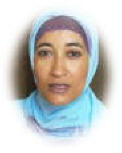
TOGETHER, LET'S FIGHT
GLOBESITY
Kareema
My Health and Fitness
Tel: 0404 844 786
|

 @Kareema_Benjamin @Kareema_Benjamin |
TUNE IN TO YOUR
WELLNESS
The key to your wellness is being mentally
stronger than you physically feel.
Check it with yourself regularly and be sure to
take time out for you.
Too often we put ourselves last and only when we
are overwhelmed with stress do we stop to ‘take
a breath’.
Regular breaks throughout the day/week/month is
imperative to your health and wellbeing, whether
it is stepping away from your desk or a short
weekend escape.
Make sure to factor it in to your wellness
journey.
|
|
|
Need an answer to a
fitness related matter?
Send your question to
Kareema at
admin@ccnonline.com.au
All questions sent in
are published here anonymously and without any
references to the author of the question. |
|
|
|
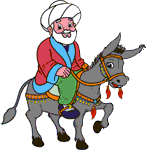
Jallaludin is in the local hospital on his last lap.
He calls his wife and children.
He then started like this:
I do not have cash right now:
"My dear wife Fathubibi you have to take over the BMW
business and move on.
My son Babu you have to take over the Sunnybank Plaza
cellphone business and move on.
Shaheeda you have to take the Jet at the airport and
get on.
My Chumpy you have to take the Mall and move on."
They all lay down on the floor and began to cry
bitterly.
The nurse comes closer to comfort, and asks: Wow, now
what are the tears for, you're not going to struggle.
You are sorted!
They answer in a chorus, ... Sorted?!!" He's the car
guard at all those places !!"
|
|
|
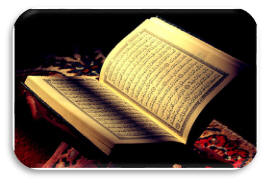
For those who believe and do
righteous deeds, will be
Gardens; beneath which
rivers flow: That is the
great salvation [the
fulfilment of all desires].
~ Surah Al-Buruj 85:11 |
|
|

THE LIFE OF THE PROPHET
(pbuh)
The Prophet Muhammad was born
in the town of Mecca around
the year 570 CE.
He belonged to the Banu
Hashim clan, a subset of the
Quraysh tribe that
controlled Mecca—the trading
and religious centre deep in
the heart of the Arabian
Peninsula.
About eighty kilometres
inland from the Red Sea, it
benefitted greatly from the
north-south trade routes
that connected the Romans in
the north and Yemen in the
south.
Yet, Mecca was far detached
from both these places.
Hundreds of kilometres of
desert surrounding the
valley town allowed it to
develop independent of any
foreign control or
influence.
Mecca was at once both
internationally connected
and isolated. But when it
came to religion, Mecca was
a focal point for the entire
Arabian Peninsula.
It was the location of the
Ka’ba and the annual
pilgrimage that attracted
Arabs from all over the
peninsula.
So while Mecca was far away
enough to elude imperial
control by the Byzantines or
Persians, it was central
enough to have a major
impact on the Arab people.
Both of these
characteristics would play a
major role when Islam began
to spread.
Source: Lost Islamic History
by Firas Alkhateeb |
|
The CCN

|

"Anyone who does
not doubt will not
investigate,
and anyone who does not
investigate cannot see,
and anyone who does not see
will remain in blindness and
error."
~ Abu Hamid al-Ghazali
|
|
I searched for God and found only myself. I
searched for myself and found only God.
Notice Board
|
BUSINESSES
|
|
|
|
|
|
 |
Aysha’s Deli
Kurry
Katchri with potato and
spinach
Green
Beans Chicken Curry
Roast
Chicken and Vegetables
Chicken &
Mushroom Pasta
Mutton
Curry & Rice
Please message if you’d like
to place an order
0407 786 489
Aysha’s Deli |
|
|
|
|
Got pest problems?
Well here's a HANDY HINT
which you may find useful.

CCN READERS GET A 10%
DISCOUNT
For more hints and pest
solutions, please visit
www.facebook.com/amgpest
and
visit our website for more information
www.amgpest.com.au
|
|
|
|
|

email us
|
|
|
|
 |
|

"If
it's not here ....it's not happening!"l
)
To
claim your slot for your event email
admin@ccnonline.com.au.
|
EVENTS & FUNCTIONS
|
|
PLEASE NOTE:
MOST
EVENTS and ACTIVITIES,
OTHER THAN
ONLINE ONES,
HAVE
CEASED FOR NOW,
UNTIL FURTHER
NOTICE.
|

|
PROGRAMMES & WORKSHOPS
|
|
|
|

|
This will be a
very special
cruise.
Full halal
catering.
Accompanied by
me with
Aboriginal
Elders and
complete
cultural
experience.
We will get to
know each other.
Prayer
facilities bring
your own prayer
mat.
I did this
cruise last year
and saw SO many
whales. Totally
recommended
nothing like it
in Australia.
I've been on six
other cruises
for whale
watching and
nothing comes
close to this
experience.
See the whales
the Indigenous
way.
Speak their
language.
Yalingbila means
Whale.
Register Now.
Send me your
names, number
etc via email
naseema.mustapha@griffithuni.edu.au
|
|
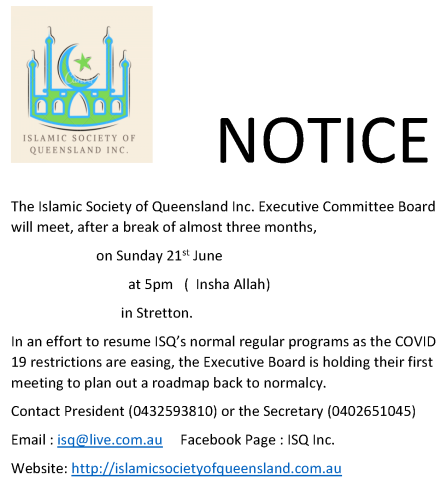
|
|
|
|
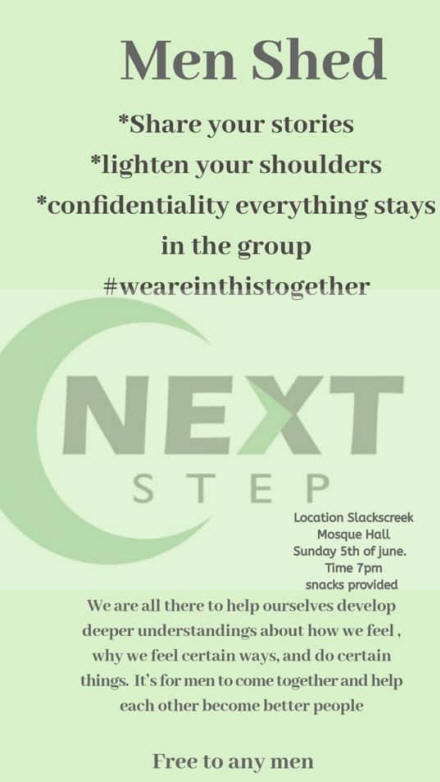
correction: 5th July |
|

|
COMMUNITY & EDUCATION NOTICES
|
|
|
|
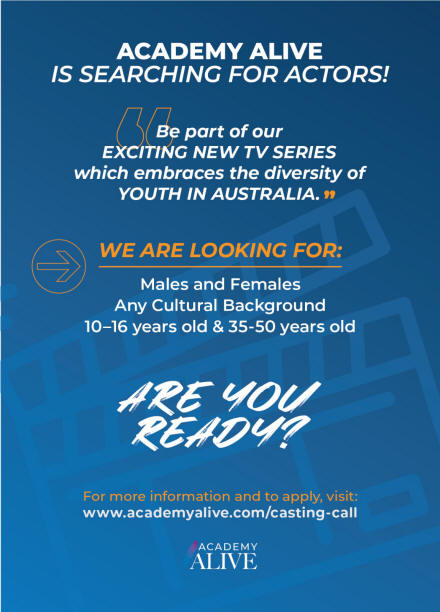
|
Academy Alive is
producing an exciting and inspiring new TV
series which will showcase the diversity of
Muslim youth growing up in Australia.
We are looking for talented youth to join us as
actors on a voluntary basis.
We would like to
request permission to distribute the following
flyer and document amongst your students.
We invite male and
female students of any cultural background to
register your interest.
|
|
|
|
|
|
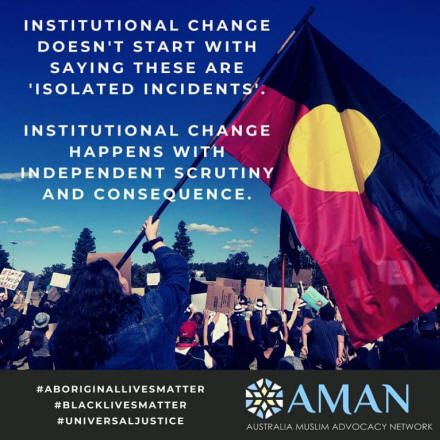
|
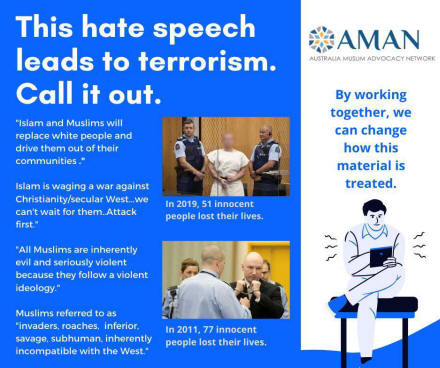 |
|
|
|
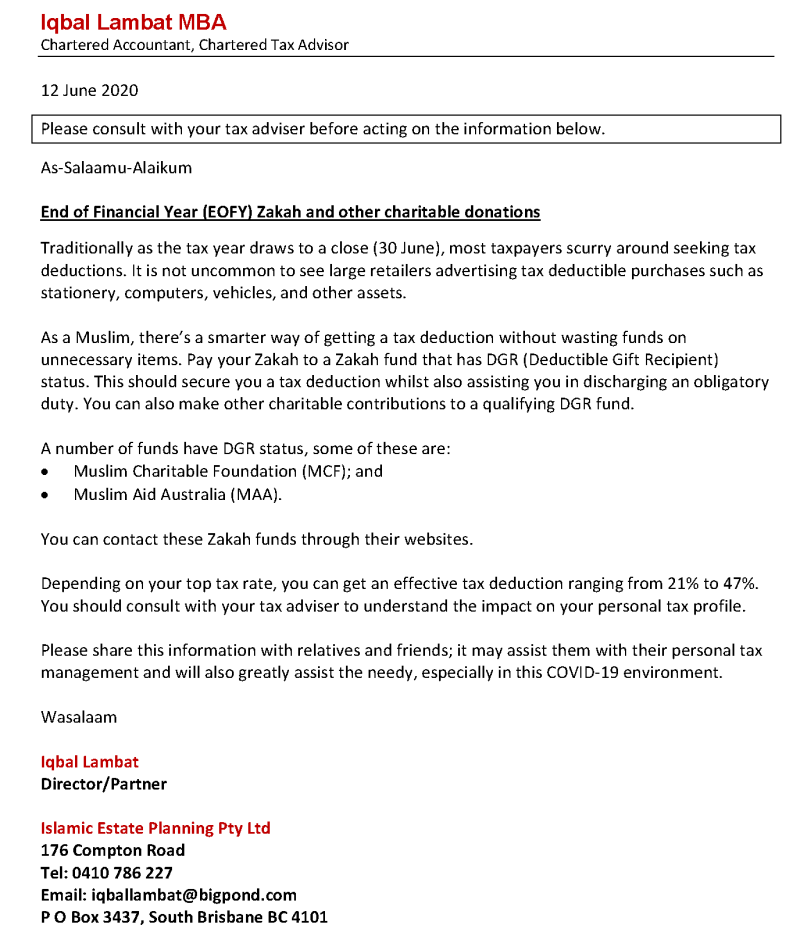 |
|
|
|
Muslim Marriage Finder
Find your ideal Muslim partner in life.
Join in with 2 Million Members and be the next.
https://www.facebook.com/MuslimMarriageFinder/

|
|
|
|
|
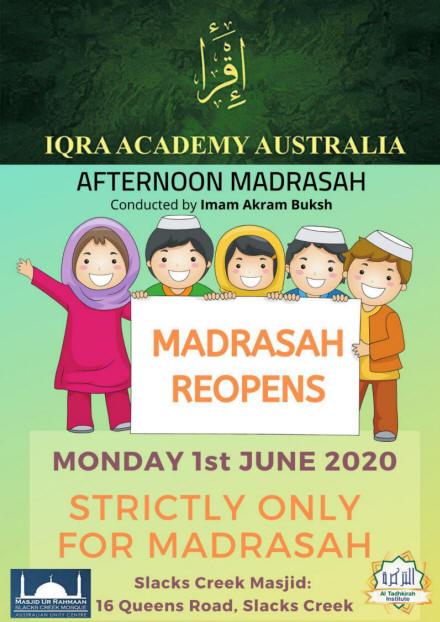
|
Know someone wanting to find out more
about Islam?
Point them to
this site

|
Alhamdulillah, over many years
I have worked with many non-Muslims who have
always asked me about Muslims & Islam, and I
have shared as much and as best as I could
within my understanding and knowledge.
Alhamdulillah I have watch them develop a
beautiful understanding of our practices, to the
extent I have seen them explain and clarify
misconceptions to others.
Once again during this past Ramadan, much was
discussed over our staff iftar dinner meeting.
So I decided to document some of this basic
Islamic information in a simple to read and
understand website and share with my staff and
colleagues.
It’s intended to be as simple as can be, whilst
still providing a good overview, including some
multi-faith interviews which I found very
valuable even to me as a Muslim.
Feel free to use and share if you feel
appropriate.
I have also shared some of the beautiful Quran
recitations and supplications with English
translation.
DR MOHAMMED IQBAL SULTAN |
|
|
|
|
 |
MFS JANAZA
Muslim Funeral Services guidelines adopted on
dealing with Janazas during this pandemic.
This includes the Covid and non-Covid Janazas, for
burials in South East Queensland.
https://www.mfs.asn.au/covid-19-janaza.html
|
|
|
|
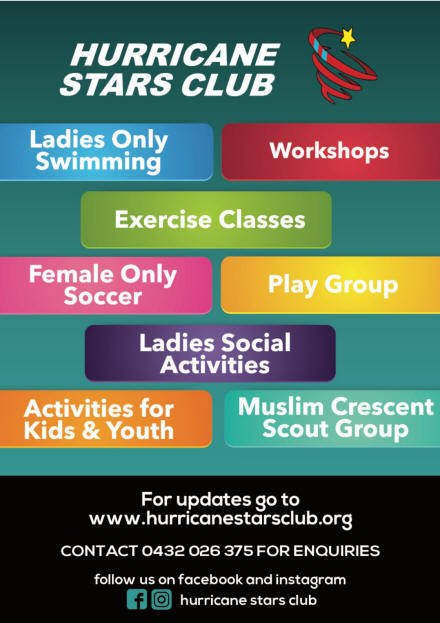
|
ACADEMY ALIVE
ENROLMENTS OPEN
The Year of Endless
Opportunities, Don't Miss Your OPPORTUNITY.
Make 2020 your year of the Quran.
https://youtu.be/_CLX92Q5UaM
Alhamdulillah, only for Brisbane
residents are we so fortunate to have the ability to
access Islamic Education on a variety of different
platforms.
With registrations CLOSING SOON there are limited spots
remaining until classes are at full capacity 2020 with
both Full – Time and Part – Time close to capacity.
“The Quran Alive course is the culmination of over 14
years of research and development. Our Academy Alive
scholars have tailored, refined and systemised our
unique curriculum, producing world class standards of
education to suit all learning styles."
View some of our success stories of our students of
2019. 2020 could be your year!
https://youtu.be/L2epDZayGCk
https://youtu.be/i8MvlOuv9ng
Registrations are closing soon – book a consultation
call with our Imaams today by clicking the link below!
https://www.academyalive.com/free-consultation
|
|
|
|
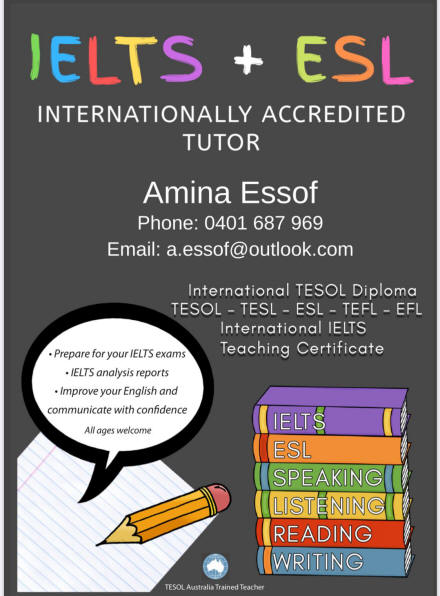
|
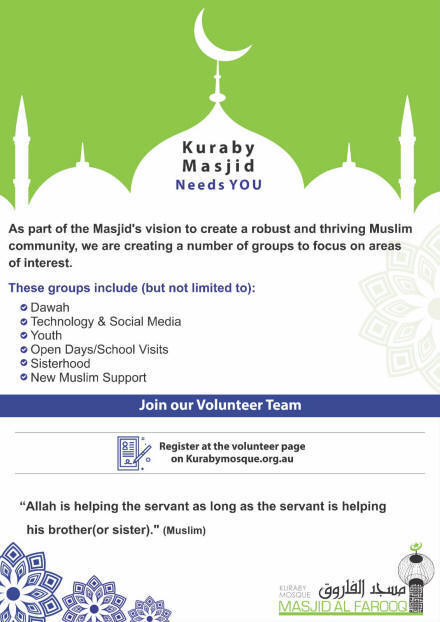
|
|
|
|
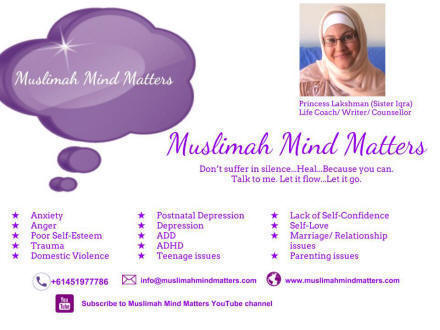 |
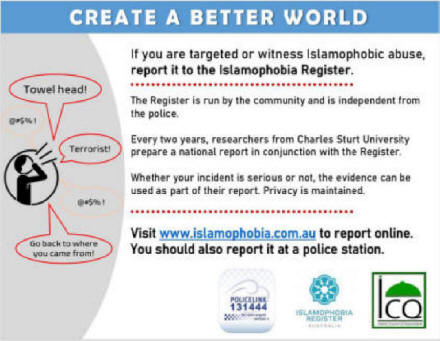
|
|
|
|
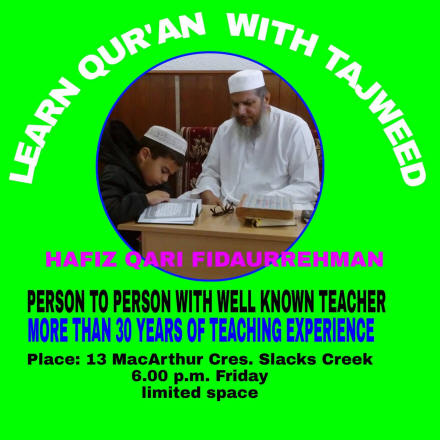
|
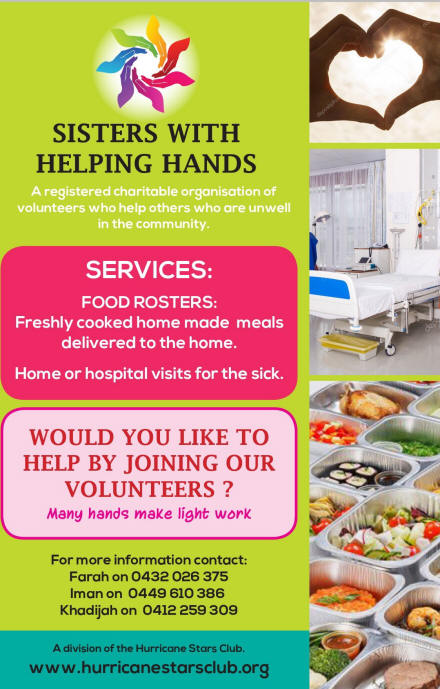
|
|

|
|
|
|
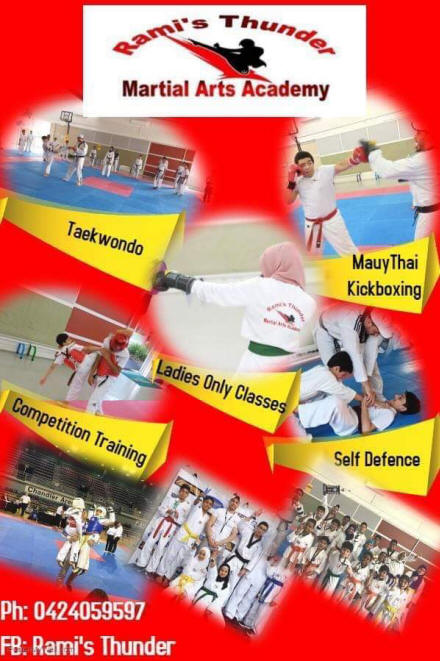 |
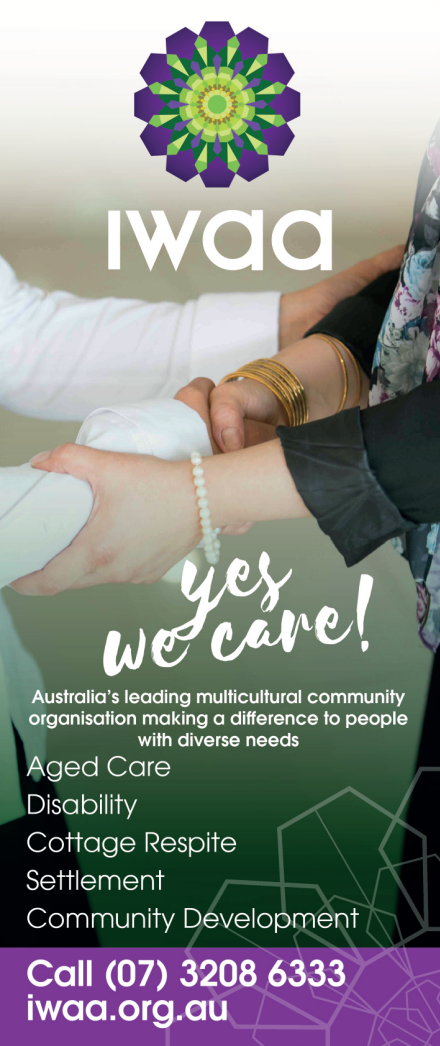
SALAM RESPITE CENTRE
CURRENTLY HAS VACANCIES
FEEL FREE TO CALL THE COORDINATOR
FOR MORE INFORMATION ON:
(07) 3272 8071 OR 0401 971 471
|
|
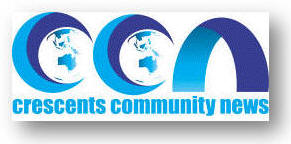
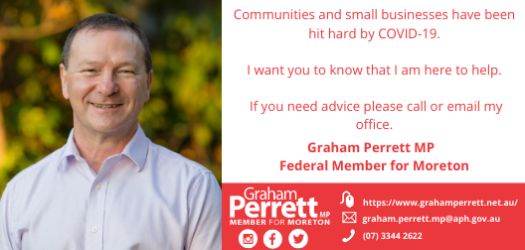
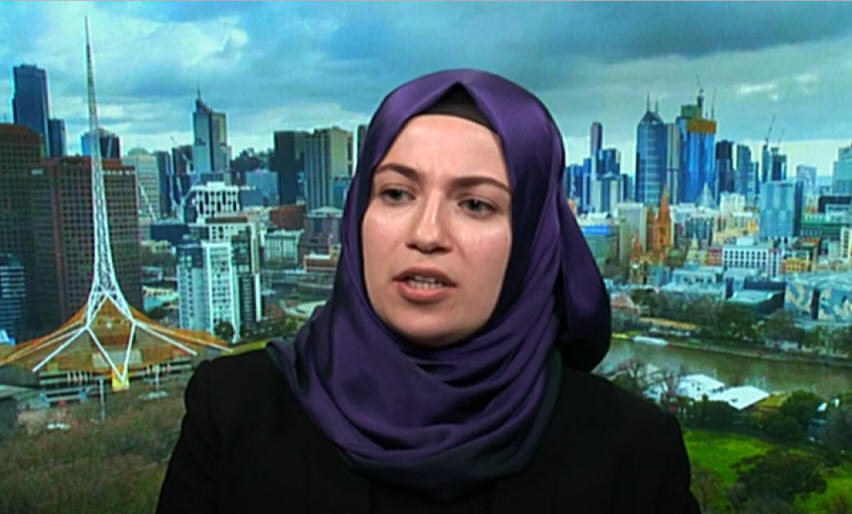
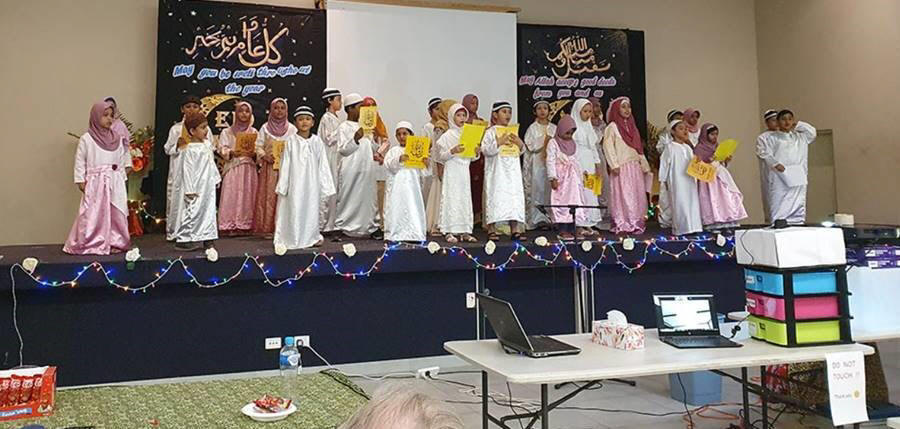
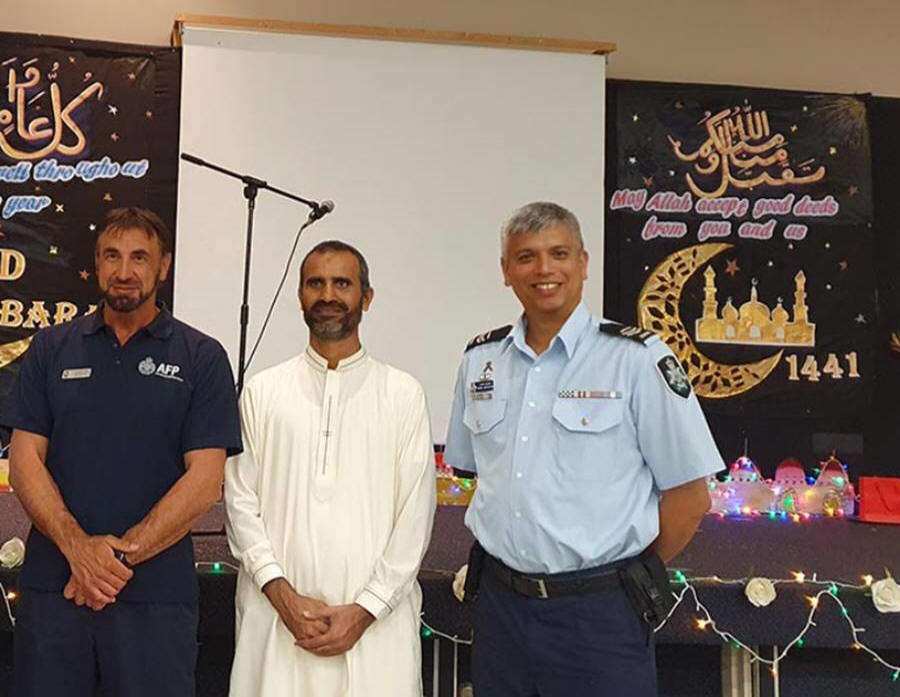





 Mehmet
Asutay
is currently a
Professor of Middle
Eastern and Islamic
Political Economy &
Finance at Durham
University Business
School.
Mehmet
Asutay
is currently a
Professor of Middle
Eastern and Islamic
Political Economy &
Finance at Durham
University Business
School.
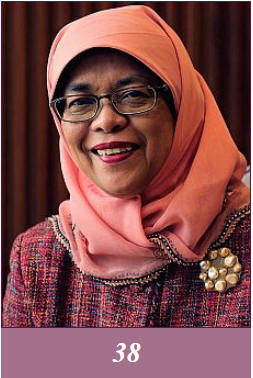
 Towards
Demystifying Islamophobia:
Towards
Demystifying Islamophobia: 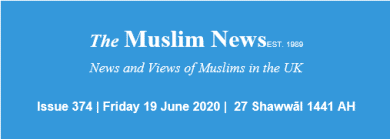
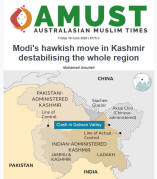


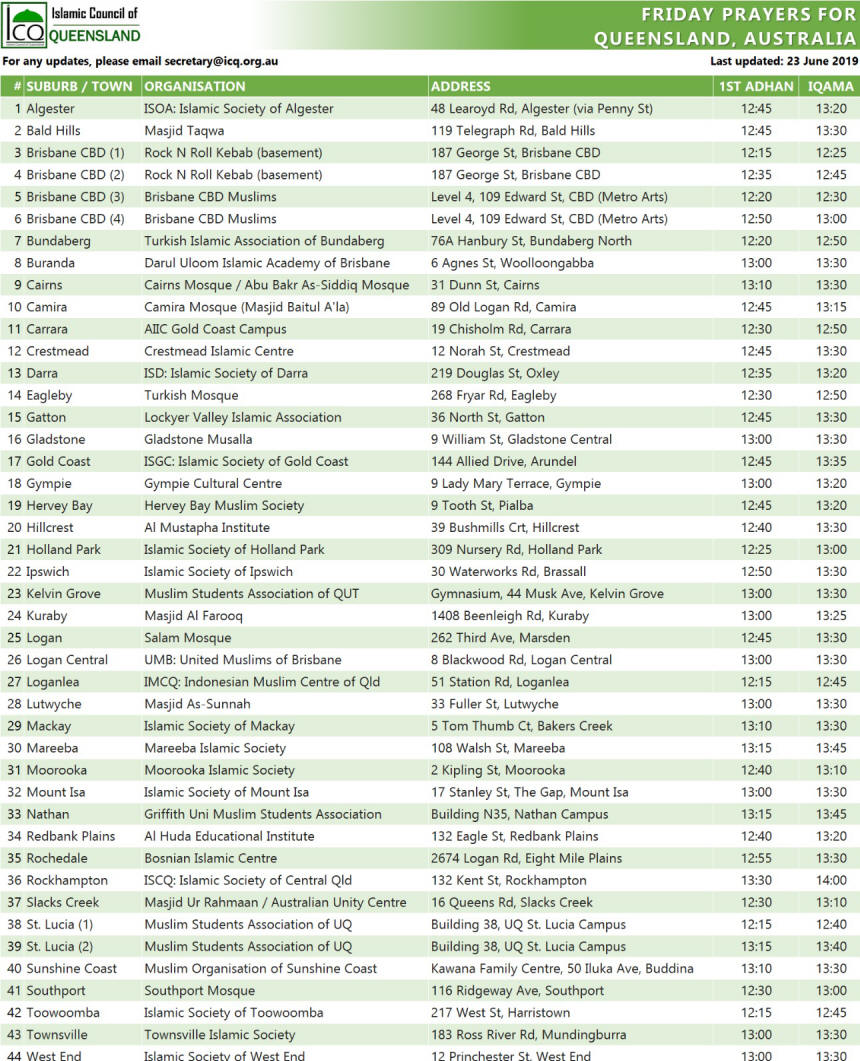




















 DESCRIPTION
DESCRIPTION


















































